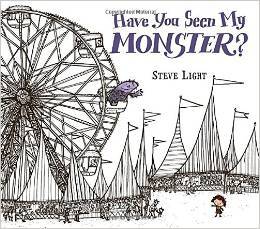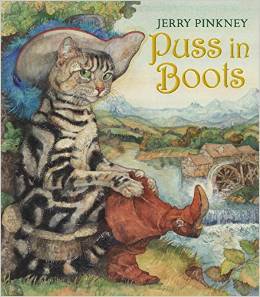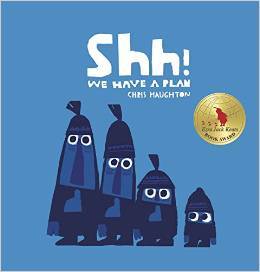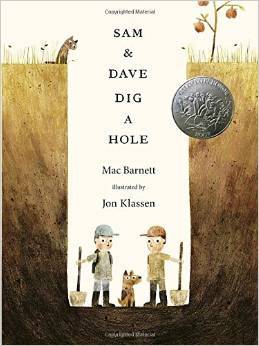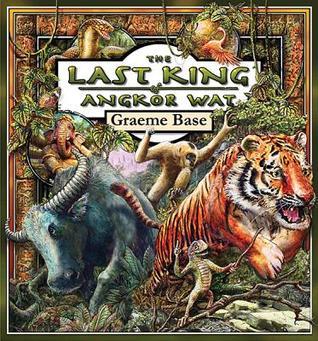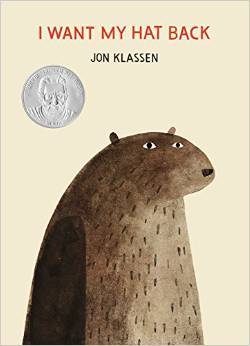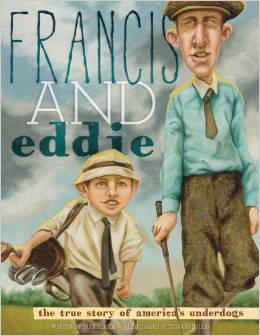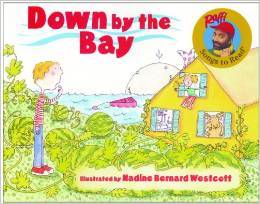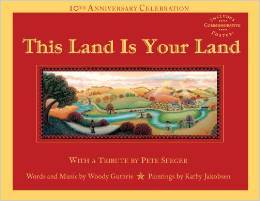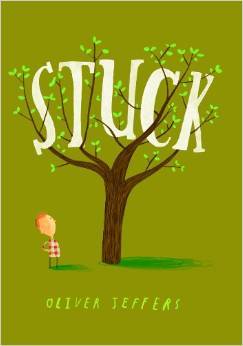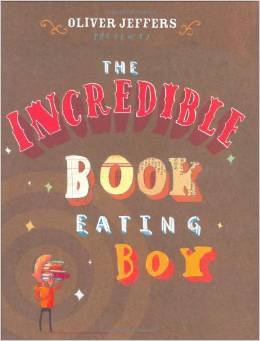"My children are pure digital natives... books? No way... iPad."
The quote I share with you is an example of the worst, most heinous, most insidious DIGIBABBLE that I know of...
Typically, statements like that originate in public forums where the speaker is working hard to make points about their digital creds and working equally as hard to take others down.
Frankly, a week or so ago at a conference, I was confronted by the same -- a dad who doesn't buy books for his children... it's not digital -- and clearly I, the grandfather who buys them by the trailer load, was not digitally savvy.
SAD...
Sad that ignorance and DIGIBABBLE (often linked) are actually hurting his kids and, worse, limiting their development and full potential.
There is an amazing renaissance happening in the children's book world. Amazing new authors (not to mention the old), fabulous new designs... typography, papers, color, brilliant illustrations, production values that are the end product of digital technology, and most importantly, the most digitally fixated kids love them.
But don't take my word.
In a recent article in Publishers Weekly, "Children's Print Book Sales Buck the Trend," the following was reported:
At our Nielsen Children's Summit in New York in December, we talked about how children's print book sales around the world in the last couple of years have been nothing short of fantastic.
Total print sales in the US rose 2%, but children's was the key driver, with 13% growth. In the U.K. total print sales fell by 2% -- children's grew by 8%. In China (where children's sales are a smaller proportion of the total than in the West) total unit sales were up 3%, but children's units grew by 10%...
[T]his same pattern of children's print sales growth outstripping total market performance was apparent in the seven other international markets we monitor through Nielsen BookScan.
In the last six months of 2014 in Brazil, children's books were 28% ahead of the second half of 2013!... The growth percentages above do not include eBooks.
So while he wouldn't be caught dead buying a print book for his kids, it seems that it's not just little old Luddite me buying, despite my volume...
Wait, there is more...
More than nine in ten parents of minor children say it is important to them that their children read print books -- eighty-one percent say it is 'very important,' and an additional 13% say it is 'somewhat important.'
Very few say having their children read print books is 'not too important' (3%) or 'not important at all' (3%). -- Pew Research, 5/28/13, "In a Digital Age, Parents Value Printed Books for Their Kids"
So my DIGIBABBLE critic is in a very small minority...
And the books are being bought in stores like Barnes & Noble -- which by the way I recommend that everyone visit during the day to get the full experience -- as Publishers Weekly further reported:
Despite the important inroads made by e-books, the Nielsen numbers show that the majority of children's books bought are still print books and are still acquired through physical stores.
Breaking the numbers down further, Nielsen shows that Barnes & Noble was the most important outlet for children's book purchases in the first nine months of 2013, accounting for 23% of units sold. Amazon was a close second, accounting for 20% of units.
I further recommend, BTW, that if you have young children find out if their school has reading sessions where guests are invited to read to the kids -- I do it at my grandkids' school and I look forward to it year after year...
OK -- so what, you ask -- what's the point?
The point my dear readers is our future -- and what makes me happy about all that I have researched is that our kids seem smarter than some of us. Listen:
If there's one important lesson to be taken from the battle between ebooks and traditional print, it's that sometimes there are no winners and losers, just a delicate seesaw act. -- DailyDot.com, 8/25/14, "The Imaginary War Between Print and Digital"
This week, that seesaw tipped a little bit towards the argument for print, when a study was released in which 50 people were all given the same Elizabeth George story to read. The outcome indicated that readers retain more when engrossed in a traditional book than they do when looking at something on a Kindle.
Reporting the findings for The Guardian, Alison Flood quoted Anne Mangen, a lead researcher on the study from Norway's Stavanger University, who said that:
'...the haptic and tactile feedback of a Kindle does not provide the same support for mental reconstruction of a story as a print pocket book does...When you read on paper you can sense with your fingers a pile of pages on the left growing, and shrinking on the right...
You have the tactile sense of progress, in addition to the visual ... [The differences for Kindle readers] might have something to do with the fact that the fixity of a text on paper, and this very gradual unfolding of paper as you progress through a story, is some kind of sensory offload, supporting the visual sense of progress when you're reading.
Perhaps this somehow aids the reader, providing more fixity and solidity to the reader's sense of unfolding and progress of the text, and hence the story.'
What we have to do -- what we need to do -- is understand that e-books are not better, nor do printed books make you old fashioned...
In defending printed books for Mashable, editorial director Josh Catone admits that, as he sees it, "Ebooks are not simply a better format replacing an inferior one; they offer a wholly different experience."
And there you have it -- a critical lesson for our digital world.
We have to remember that DIGITAL IS EVERYTHING... BUT NOT EVERYTHING IS DIGITAL.
As I pointed out, the fabulous quality of books today is due to the application of digital technology, but they themselves do not have to be digital in output.
And more, we need to balance our world.
The effect of banning mobile phones from school premises adds up to the equivalent of an extra week's schooling over a pupil's academic year, according to research by Louis-Philippe Beland and Richard Murphy, published by the Centre for Economic Performance at the London School of Economics.
'Ill Communication: The Impact of Mobile Phones on Student Performance' found that after schools banned mobile phones, the test scores of students aged 16 improved by 6.4%. The economists reckon that this is the 'equivalent of adding five days to the school year'. -- The Guardian, 5/16/15, "Schools that Ban Mobile Phones See Better Academic Results":
We have to eliminate the DIGIBABBLE as the Waldorf Schools have -- a topic I have written on before.
Bottom line -- the lesson that we learn from our children and grandchildren is to open our eyes and not be blinkered by our own prejudices and fears of not being seen as digital enough.
And, as I said, be thankful that our children not only jump from screen to screen and device to device seamlessly... they can move from analog to digital and back just as fluidly and without the self-consciousness that sometimes inhibits us older folks...
And if that isn't a lesson for what might be next, I don't know what is....
So as I sit here thinking about the books I plan to read my own grandchildren next week, I was inspired by the following thought... Listen:
"Do not confine your children to your own learning for they were born in another time." Hebrew Proverb
What do you think?
P.S. -- a few of my favorite books...

